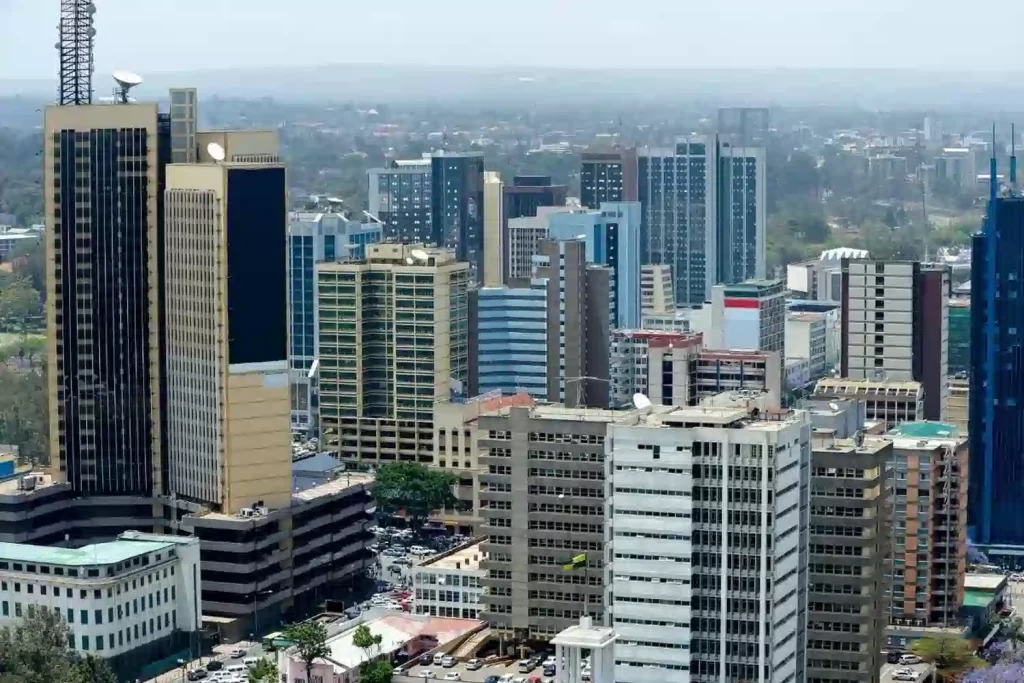
IN PARTNERSHIP WITH

Happy salary day 🌄
Ads are definitely coming to Netflix. 🥲
Last week, Netflix’s co-CEO, Ted Sarandos, confirmed that the company is aiming to release an ad-supported bundle for subscribers who cannot afford its present bundles.
It’s also trying to recoup some of the subscribers it lost earlier this year. For the first time in 10 years, Netflix lost subscribers—over 200,000 of them—between January and March. The loss has also made the company lay off about 450 employees since May.
Meanwhile, Disney+ is also planning to launch an ad-filled bundle in the US this year. While we don’t know how long Netflix’s ads will be, Disney reports that it’ll implement 4-minute-per-hour ads on a cheaper bundle.
In today’s edition
- Energy consumption drops with crypto prices
- What’s President Kenyatta recommending for Kenya’s ICT Bill?
- TC Insights: Healthtech’s giant strides
- Puzzle: How many words can you find from “founders”?
- Job opportunities
CRYPTO MARKET
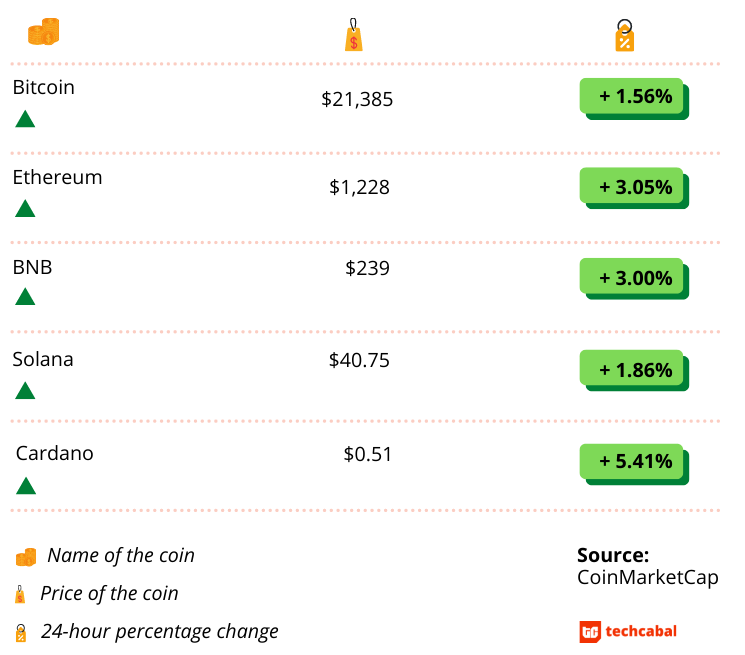
* Data as of 06:00 PM WAT, June 26, 2022.
There’s one good thing coming out of this shocking crypto dip. Energy consumption is also dropping. 🌚It takes a lot of energy to mine crypto. In 2021, over 200 terawatt-hours (TWh) were used to mine bitcoin alone. At the beginning of June, bitcoin miners were using 204.5 TWh, but that number has now dropped to 132 TWh. To be clear, 132 TWh is roughly the same amount of energy Argentina uses in a year.
Why is it dropping? It’s no longer as profitable to mine bitcoin as its prices are dropping. Miners aren’t getting enough value out of mining bitcoin, and it’s affecting their electricity bills.
Even ethereum miners have also slowed down with energy consumption dropping from 93.98 TWh in May to 47.73 TWh, as of Friday last week.
There is a silver lining to the dip after all. The earth is healing itself. 🌚
PRESIDENT KENYATTA’S RECOMMENDATIONS FOR KENYA’S ICT BILL
We’ve spent a few weeks discussing Kenya’s ICT Practitioners’ Bill.
ICYMI: Kenya has been trying to enact a bill that mandates all ICT practitioners—tech bros from software engineers to graphics designers—to get licensed.
Now you’d think this would be a great way to hold techies in Kenya accountable, but the bill, as most African tech bills are wont to be, is quite mischievous. It also requires annual licensing fees and prevents unlicensed professionals from working in Kenya. The sponsor of the bill also runs an ICT firm and the bill states that all licenses should be obtained from certain “licensed” ICT firms.

After 2 years, the bill was passed to President Uhuru Kenyatta for approval. Thankfully, Kenyatta declined last Wednesday and gave recommendations for amendment of the bill.
What Kenyatta wants for Kenyan techies
The president wants some troublesome clauses removed, specifically clauses 24 and 25.
Clause 24 prevents ICT practitioners from practising without a license. Basically, if you want to build an API or design a website, you need a license or else you can be punished with up to 2 years in prison and a Ksh 500,000 fine. 😐
According to President Kenyatta, “The licensing requirement imposes an undue barrier to entry into the ICT sector and places an unfair burden on ICT practitioners. For the foregoing reasons, I recommend that the Bill should be amended by deleting clause 24.”
The president also ordered the deletion of clause 25 which requires renewal of licenses; and clause 10 which he says fails to extend the definition of ICT practitioners to teachers and civil servants in the tech sector. To Kenyatta, ICT practitioners include everyone in the sector, including the people who teach the profession.
Zoom out: There are still a number of troublesome clauses in the bill, including clause 19 which requires practitioners to have bachelor’s degrees before they can practise. Like we said last week, it’s not remotely over, and Kenyans will have to keep their voices raised if they want to protect their tech space.
Don’t just send money, send money fast. Send and receive money directly to mobile wallets, bank accounts, Barter or through cash pickup with $end.
Visit send.flutterwave.com and do it now!
This is partner content.
TC INSIGHTS: HEALTHTECH’S GIANT STRIDES
Africa’s healthtech industry is growing in leaps and bounds. Faced with multiple challenges across the healthcare delivery value chain, startups have risen to the occasion within the last decade to solve them in creative ways.
Startups like DrugStoc and Rocket Health are disrupting the pharmaceutical value chain by deploying inventory management and marketplaces to connect pharmacies and clinics to a trusted supply of products and creating access for end users via digital pharmacy operations respectively.
While funding for healthtech startups increased significantly within the past year, a significant chunk went to telemedicine-focused startups. This isn’t surprising at all. According to Ugochukwu Iwuchukwu, Product Marketing Manager at Helium Health, “Healthcare in Africa is dramatically different from healthcare in other continents; there’s a level of context that isn’t clear to investors. And telemedicine is an easier idea to pitch to investors compared to other sub-sectors.”
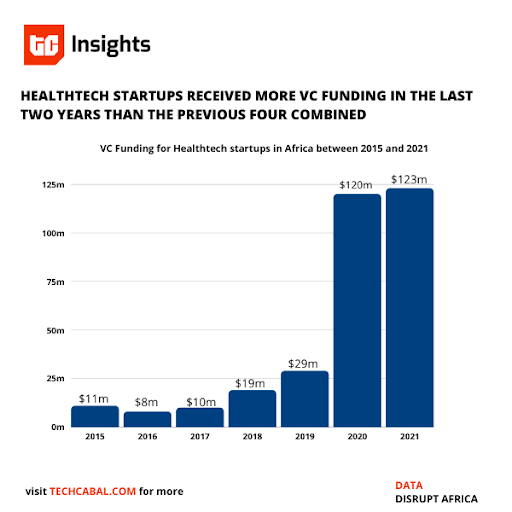
Furthermore, the COVID-19 pandemic created a host of opportunities for innovators and entrepreneurs within the space, driving up the number of startups founded within the last 2 years. According to Salient Advisory, 22% of all healthtech companies tracked were founded amid the pandemic.
While a pandemic can be a blessing in disguise, it doesn’t last forever. As a result, startups built to address pandemic-specific problems have to extend their offerings beyond this. “It’s not out of place to see a lot of healthtech startups spring up as a result of the pandemic, and it cuts across other businesses. It’s important to note if these businesses were founded to address problems unique to the pandemic or beyond the pandemic, there are other aspects they can pivot to. Startups that were pandemic centric will likely to pivot to diversify their business while those who withstand the test of time will go on to mature as full-fledged businesses.”
As the healthtech revolution on the continent waxes strong, it is important for both startup innovators and governments across levels to provide innovation-friendly environments that can drive scale and impact. “There is a strong relationship between the public and private sector in Nigeria’s healthcare industry. Sixty percent of healthcare delivery is handled by the government. There are certain things that the government can not innovate on quickly but the private sector can handle. “
A robust healthtech industry brimming with innovation is crucial to the future of health in Africa.
Fincra provides easy-to-integrate APIs developed and designed to launch seamless and reliable global payment solutions.
With Fincra’s customisable APIs, developers can build quick financial applications.
Build the best payment solutions on Fincra.
This is partner content.
IN OTHER NEWS FROM TECHCABAL
How one of Africa’s oldest fintechs, Cellulant, evolved. First, it was a mobile content company providing caller tunes. Now, it’s a fintech company with a $100 million Series D in the works. Cellulant has reinvented itself.
Rwazi is providing data to African businesses. Have you ever tried to find data on certain things in Africa? Like how many Africans own generators and which brand of generators are preferred? It’s hard, but there are people solving it. Rwazi, for example, is going door-to-door to collect this data.
Moringa School is set to launch in Nigeria. If you want to learn how to get into Africa, there’s never been a better time! More schools are expanding across the continent to teach people tech skills. Moringa School is one of them, and now, it’s planning to expand into Nigeria and Ghana.
PUZZLE: HOW MANY WORDS CAN YOU FIND FROM “FOUNDERS”?
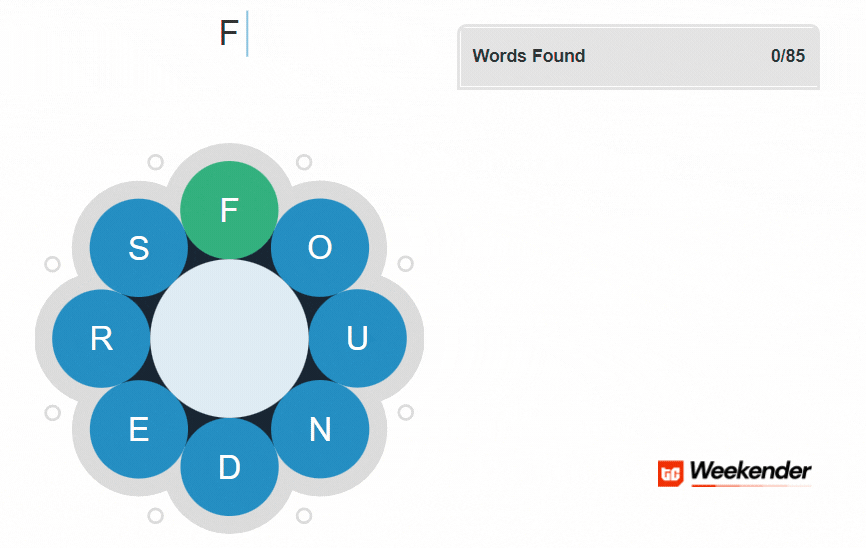
There are 85 words to find in today’s puzzle, and they’re dedicated to all the builders out there.
We’ve already found the most important one—”fund”—how many more will you find?
This is partner content.
JOB OPPORTUNITIES

- TechCabal – Editor-in-Chief – Lagos, Nigeria
- Big Cabal Media – Head of Events, Associate Art Director, Associate Video Editor – Lagos, Nigeria
- Helicarrier – Growth Lead (Sendcash) – Africa (Remote)
- Lazerpay – Developer Relations Advocate, Senior Backend Engineer – Africa (Remote)
There are more opportunities here. If you’d like to share a job opening or an opportunity, please fill this form.
What else is happening in Africa?
- This African VC-backed home cleaning service, SweepSouth, is expanding to its biggest market yet.
- Kenya’s Health Cabinet Secretary is calling for more investments in Kenyan healthtech.
- Egyptian fintech startup Lucky secures approval to launch payments card.
LOOK THE PART WITH TECHCABAL
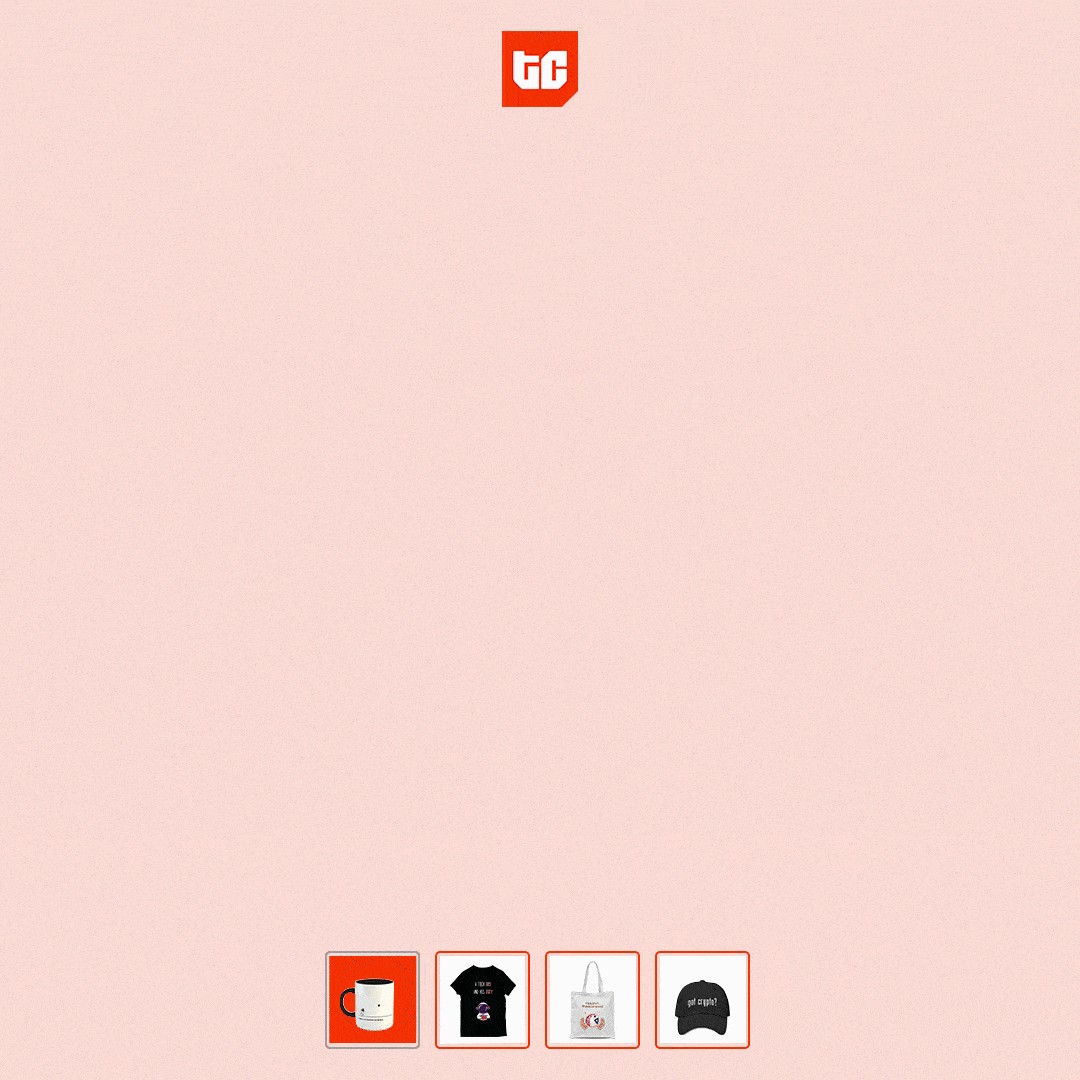
Want to be a tech bro? Then you have to look the part. Start your journey with TehCabal Merch.




























